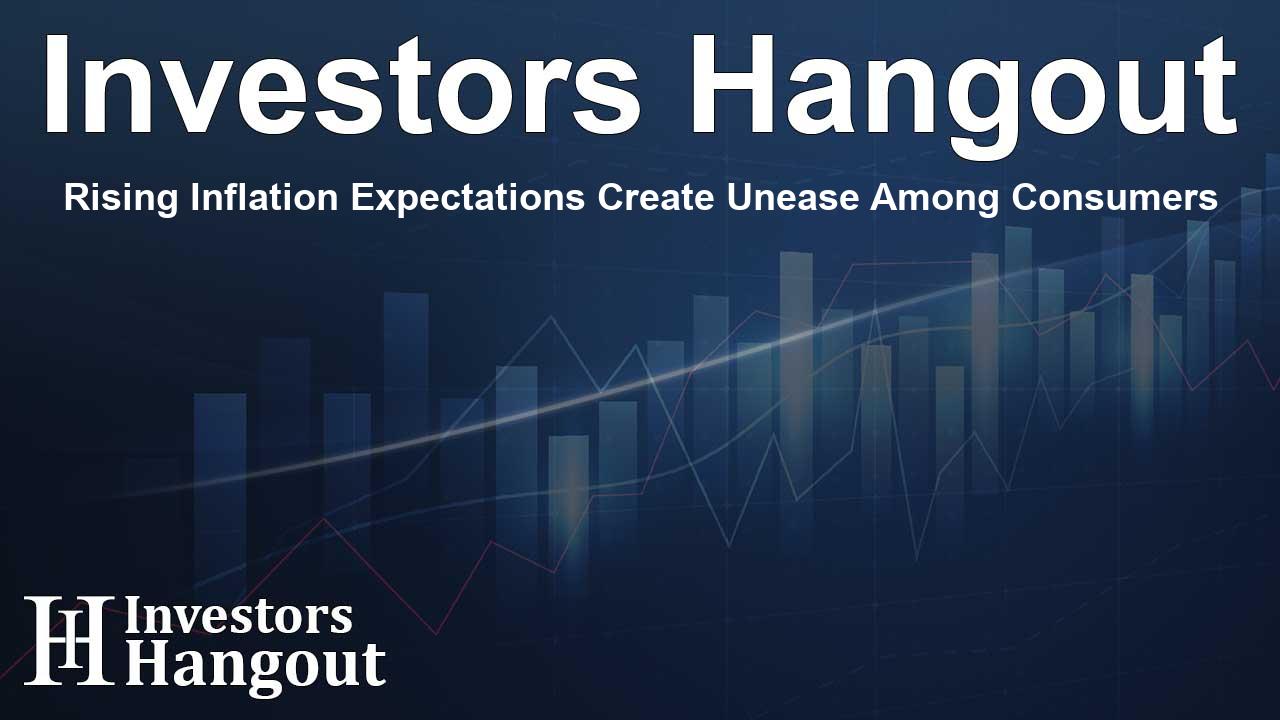Rising Inflation Expectations Create Unease Among Consumers

Rising Inflation Expectations Create Unease Among Consumers
Inflation expectations in the United States are rising sharply, as consumers brace for increased prices due to a variety of factors. This sentiment was highlighted in a recent survey, which indicated concerns about the implications of new tariffs promised by the incoming administration.
Consumer Sentiment on Inflation
The University of Michigan's survey revealed that one-year inflation expectations surged to 3.3% in January, a notable jump from December’s figure of 2.8%. This marks the highest expectation level observed since May, pushing the 12-month outlook beyond the previously stable range of 2.3% to 3.0% that had characterized the two years preceding the pandemic.
Long-term Expectations Rise
Long-term inflation expectations also escalated, reaching 3.3%, the peak since June 2008, up from 3.0% in the previous month. Such increases indicate that consumers across different demographics, particularly those with lower incomes, are feeling the pinch and expressing significant concern.
Impact of Tariffs and Policies
The expected rise in consumer prices is not only tied to tariffs but also to broader economic policies. Analysts have warned that heightened tariffs can result in higher costs for a range of goods, pushing consumers to rethink their financial decisions. Joanne Hsu, the Director of Surveys of Consumers, noted that inflation expectations are on the rise among various demographic groups.
Political Climate and Economic Concerns
Political campaigning has played a crucial role in shaping these sentiments. During the recent electoral campaign, promises of reduced prices appealed to many voters, particularly those frustrated with the cost of living. The current administration's approach, including potential tariffs and discussions surrounding immigration policy, also influences economic predictions.
Federal Reserve’s Response
In response to the growing inflation expectations, the Federal Reserve has indicated that it might not alter interest rates as drastically as earlier anticipated. The current benchmark interest rate remains within the range of 4.25% to 4.50%, which could remain stable for the foreseeable future. This follows a series of rate cuts with projections made prior indicating up to four cuts within the year.
The Labor Market Factor
The labor market remains a vital component in this narrative, as strong job growth could bolster consumer confidence and stabilize inflation concerns. However, as inflation fears grow, they have started to weigh on consumer sentiment, which saw a decline from December’s final reading.
Consumer Confidence Index Trends
Recent surveys show a dip in consumer confidence, with the overall index of consumer sentiment from the University of Michigan coming in at 73.2 in January, slightly down from December's 74.0. Concerns about how tariffs might affect prices are increasingly becoming the dominant worry.
Economic Forecast Outlook
Despite these concerns, economists are cautious about predicting a significant downturn. Indicators show a drop in consumer comfort for large and household purchases, along with a growing apprehension regarding future investments. Johnny Sawyer, a senior research manager at Ipsos, noted that various factors, including job losses, are causing unease among consumers.
Frequently Asked Questions
What are the rising inflation expectations among U.S. consumers?
Recent surveys indicate a significant rise in consumer expectations for inflation, with a notable jump to 3.3% in January, reflecting concerns over potential tariff impacts.
How do tariffs affect consumer prices?
Tariffs can increase the cost of imported goods, leading to higher prices for consumers, which contributes to overall inflation fears.
What is the Federal Reserve's stance on interest rates?
The Federal Reserve plans to maintain the current interest rates due to rising inflation expectations, with fewer rate cuts anticipated in the near term.
What factors are driving the decline in consumer sentiment?
Consumer sentiment is declining due to concerns over inflation, job losses, and the perceived costs associated with new economic policies.
How might the political landscape influence the economy?
The current political climate and economic policies are expected to shape consumer confidence and inflation rates significantly.
About The Author
Contact Henry Turner privately here. Or send an email with ATTN: Henry Turner as the subject to contact@investorshangout.com.
About Investors Hangout
Investors Hangout is a leading online stock forum for financial discussion and learning, offering a wide range of free tools and resources. It draws in traders of all levels, who exchange market knowledge, investigate trading tactics, and keep an eye on industry developments in real time. Featuring financial articles, stock message boards, quotes, charts, company profiles, and live news updates. Through cooperative learning and a wealth of informational resources, it helps users from novices creating their first portfolios to experts honing their techniques. Join Investors Hangout today: https://investorshangout.com/
The content of this article is based on factual, publicly available information and does not represent legal, financial, or investment advice. Investors Hangout does not offer financial advice, and the author is not a licensed financial advisor. Consult a qualified advisor before making any financial or investment decisions based on this article. This article should not be considered advice to purchase, sell, or hold any securities or other investments. If any of the material provided here is inaccurate, please contact us for corrections.
